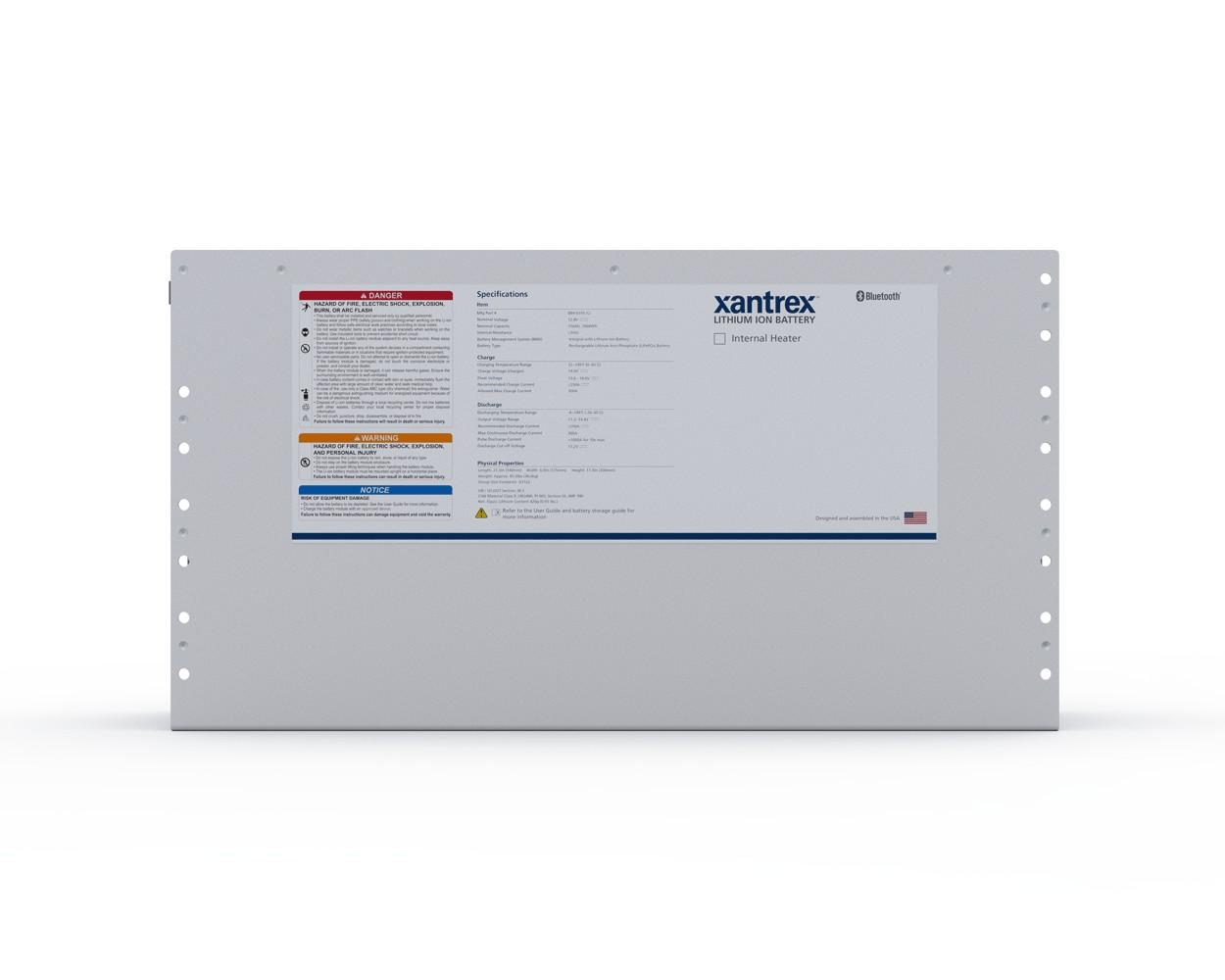An exploded lithium Ion battery can be extremely dangerous and should be handled with caution. Lithium-ion batteries can present a serious risk when they explode.
These batteries are commonly used in electronic devices like smartphones, laptops, and electric vehicles. When a lithium-ion battery explodes, it can release toxic gases, cause fires, and even result in personal injury. Following proper safety protocols when dealing with a damaged or exploded battery is crucial.
This includes avoiding direct contact with Keeping the battery away from combustible materials and seeking professional assistance for its safe disposal. Understanding the dangers of exploded lithium-ion batteries is essential for preventing accidents and ensuring personal safety.
Causes Of Lithium-ion Battery Explosion
Exploded lithium-ion batteries can cause significant damage and pose severe risks to individuals and property. Understanding the causes of these explosions is essential to prevent such accidents and ensure battery safety. Here are the key factors that contribute to lithium-ion battery explosions:
1. Manufacturing Defects
Lithium-ion batteries can face manufacturing defects that compromise their integrity and lead to explosions. Faulty insulation, subpar quality control, or improper assembly during manufacturing are common causes of such defects. These defects may result in short circuits or internal damage, releasing highly reactive chemicals inside the battery.
2. Overcharging And Overheating
Overcharging and overheating are significant causes of lithium-ion battery explosions. When a battery is subjected to an excessive voltage or charging period, it can lead to a phenomenon called “thermal runaway.” As the temperature increases, the battery’s internal components become more volatile, triggering reactions that can culminate in an explosion.
3. Physical Damage
Lithium-ion batteries are susceptible to explosions when they sustain physical damage. Physical stressors such as impact, punctures, or compression can compromise the battery’s structural stability, leading to internal short circuits or the release of flammable electrolytes.
Even a minor dent or a cracked casing can create a pathway for the battery’s reactants to interact undesirably, increasing the risk of an explosion.

Credit: tweetys.com
Dangers And Consequences
Exploded lithium-ion batteries pose significant risks and consequences that cannot be ignored. These batteries, often found in smartphones, laptops, and other portable electronic devices, can lead to fire and explosions, health risks from exposure, and severe environmental impact.
1. Fire And Explosion Risk
Lithium-ion batteries can catch fire or explode if damaged, overcharged, or exposed to high temperatures. The chemical reactions within these batteries generate large amounts of heat. When the battery’s internal components fail, it can result in a thermal runaway.
This uncontrolled release of energy can lead to a fire or explosion, putting individuals, properties, and surroundings in great danger.
2. Health Risks From Exposure
Exposure to the byproducts of a lithium-ion battery explosion can lead to severe health risks. When these batteries explode, they release toxic gases like hydrogen fluoride and carbon monoxide, which can harm the respiratory system if inhaled.
Additionally, the chemicals and materials used in constructing These batteries, which include nickel, cobalt, and lithium, can pose health hazards if they come into contact with the skin or are ingested.
3. Environmental Impact
The environmental impact of exploded lithium-ion batteries is another critical concern. These batteries contain hazardous materials that can contaminate soil, water sources, and the surrounding ecosystem if not properly managed.
The improper disposal or mishandling of these batteries can lead to pollution and toxic exposure for plants, animals, and humans. Additionally, the extraction and production of the components of lithium-ion batteries have their own environmental consequences, further contributing to the overall impact.
Prevention And Safety Measures
Stay ahead of potential dangers by implementing prevention and safety steps to reduce the dangers connected with exploded lithium-ion batteries. Prioritize safety protocols and procedures to safeguard yourself and your surroundings.
Ensuring Proper Battery Manufacturing
High-quality battery manufacturing is crucial to prevent incidents related to lithium-ion batteries. Manufacturers should adhere to strict safety standards and procedures during the production process.
They must conduct rigorous testing and quality control checks at various stages to ensure the batteries are free from defects or abnormalities that could lead to explosions.
Advanced technology and automated systems can help minimize the human error factor in manufacturing. Manufacturers should employ trained professionals who deeply understand the battery chemistry and safety protocols.
Safe Usage And Handling Guidelines
Proper usage and handling of lithium-ion batteries are essential to prevent hazardous incidents. Users should follow these safety guidelines:
- Avoid exposing batteries to extreme temperatures as it can cause thermal runaway.
- Never puncture, crush, or damage the battery in any way, as it can lead to leakage and an increased risk of explosion.
- Always use the recommended charger and avoid counterfeit or cheap chargers that do not have the proper voltage regulation.
- Disconnect the battery from the charger once it is fully charged to prevent overcharging.
- Avoid over-discharging the battery, as it can result in irreversible damage.
- Do not store the battery close to combustible objects or in direct sunlight.
- Keep batteries away from children and pets to ensure their safety.
Transportation And Storage Safety
Safely transporting and storing lithium-ion batteries is crucial to prevent accidents. Guidelines for transportation and storage safety include:
- Transport batteries in sturdy and secure containers that provide protection against physical damage and short circuits.
- Ensure batteries are adequately packaged, following transportation regulations and guidelines.
- Avoid stacking batteries or storing them in a way that can lead to compression or crushing.
- Store batteries in a cool, dry place with adequate ventilation.
- Consider using a fire-resistant storage container or cabinet to reduce the chance of a fire spreading in case of a battery failure.
Following these prevention and Safety precautions can lower the chance of incidents associated with exploded lithium-ion batteries. Whether it’s ensuring proper battery manufacturing, practicing safe usage and handling or implementing transportation and storage safety protocols, every step counts in ensuring the safety of these powerful energy sources. Prioritizing safety above all else when working with lithium-ion batteries.

Credit: nomadicsupply.com

Credit: www.weenterprises.com
Can A Dead Exploded lithium Ion Battery
While uncommon, a dead or damaged lithium-ion battery can explode or catch fire under certain conditions. Lithium-ion batteries contain flammable electrolytes, and if the battery is compromised, such as through physical damage or manufacturing defects, it may lead to a short circuit, overheating, and ultimately result in a thermal runaway reaction.
Handling lithium-ion batteries with care and following proper disposal procedures is essential. If a battery is damaged or swollen, it should be handled cautiously and not used. Instead, recycling or disposing of it is recommended according to local regulations.
However, it’s important to note that the risk of explosion from a dead or damaged lithium-ion battery is relatively low compared to the overall number of these batteries in use.
Following safety guidelines, using quality chargers, and avoiding physical damage can significantly reduce the likelihood of such incidents.
Frequently Asked Questions For Exploded Lithium Ion Battery
Why Do Lithium-ion Batteries Explode?
Lithium-ion batteries can explode due to overheating, physical damage, or manufacturing defects. When the battery is overcharged or exposed to extreme temperatures, internal chemical reactions occur, producing gas and pressure buildup. If the pressure exceeds the battery’s capacity, it can rupture and explode.
Are Lithium-ion Batteries Safe?
Lithium-ion batteries are generally safe, but mishandling or abuse can lead to safety hazards. Following safety guidelines such as avoiding overcharging, using the correct charger, and avoiding extreme temperatures can minimize the risk of accidents. Taking caution when handling lithium-ion batteries is essential, and use them as per the manufacturer’s instructions.
How Can I Prevent Lithium-ion Battery Explosions?
To prevent lithium-ion battery explosions, ensure proper charging practices using the correct charger and avoiding overcharging. Avoid exposing batteries to extreme temperatures and physical damage. Store batteries in a dry, cold environment and replace them if they show signs of swelling or damage.
- Following these precautions can help minimize the risk of explosions.
Conclusion
The detonation of a lithium-ion battery can have serious consequences, threatening individuals and their surroundings. Understanding these explosions’ causes and potential dangers is crucial for ensuring our safety. Taking necessary precautions and being aware of the warning signs can minimize the risks and prevent such incidents.
Stay informed, stay safe!

I am Nishadujjaman.I have two years of experience all types of battery like tesla battery,car battery etc. So I work on solving these issues and give various tips on these issues.
